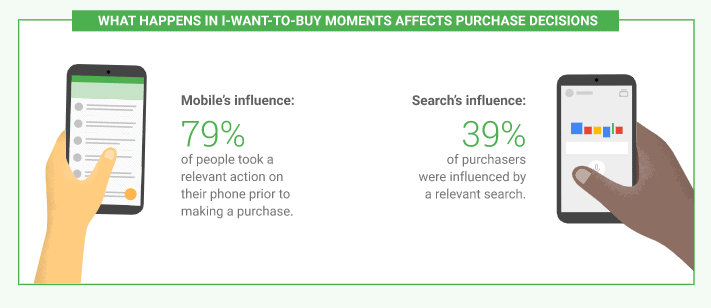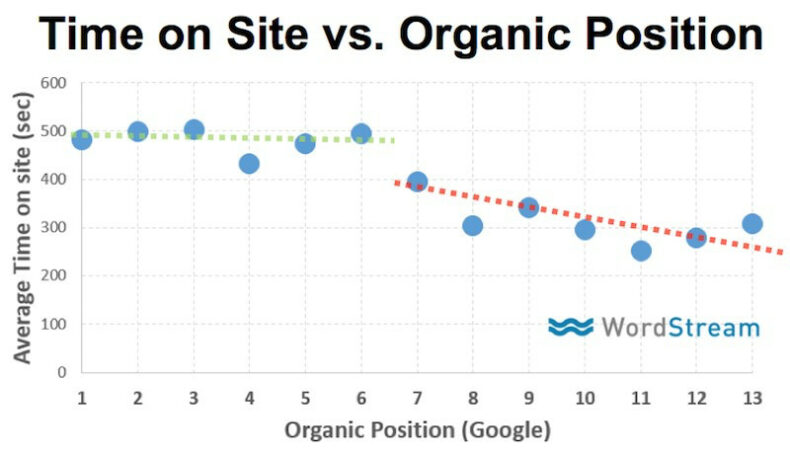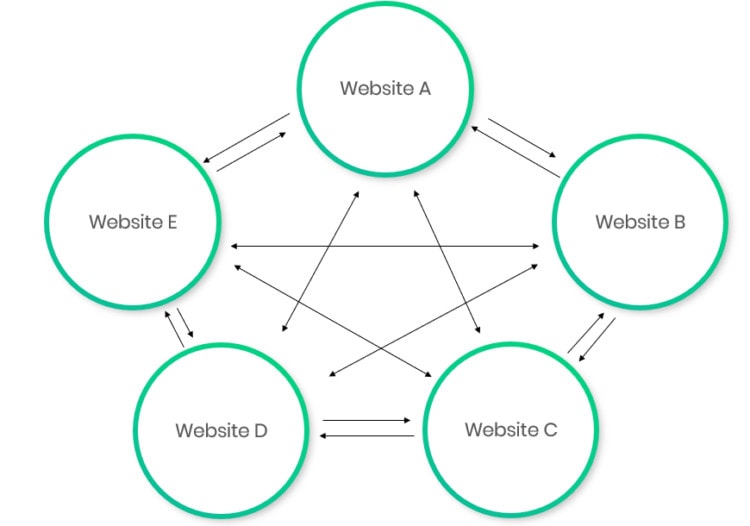Table of Contents
User experience in Google search results greatly impacts whether or not people continue using the search engine. When provided relevant results, users are more likely to follow a call-to-action. That’s why Google rewards websites that offer a great user experience, helping searchers find exactly what they need.

Most SEO best practices are designed to improve user experience and/or the indexing process for crawlers. On the other hand, E-A-T SEO factors were originally designed for human quality raters to help improve Google’s algorithm.
Today, webmasters can improve the user experience and their rankings in the process by optimizing for these factors.
What are Google EAT SEO factors?
In SEO, the acronym EAT refers to expertise, authoritativeness, and trustworthiness. These three characteristics are what separate high-quality content from low-quality content.
Google’s search quality rater guidelines mention EAT SEO factors more than 130 times, which should tell you just how significant they are when it comes to rankings. But what exactly are these criteria, and how does Google measure them?
Expertise
Google considers an expert as someone with experience and deep knowledge of a topic. It determines expertise by analyzing your credentials and experience within the context of the web page’s main topic.
The requirements for being an expert vary from industry to industry. Here are some examples of who would be considered an expert for various subjects:
- Blog about video games: Someone with several years of experience playing or creating games.
- Healthy eating website or blog: A registered dietician or nutritionist.
- Product review page: Any content creator who has bought and/or used the product in question.
- A lifestyle blog: Influencers with relevant life experience.
- Medical advice forum: A doctor with the correct credentials and background within the specific area of medicine.
As you can see, someone’s level of expertise heavily depends on the subject of the page. Google will consider you an expert as long as you have the experience or credentials to back it up.
Authority
A piece of content’s authority comes from its main content (MC), author, and website as a whole. You build authoritativeness by providing accurate content and being a consistent, reliable source of information. The search engine uses many signals to determine page authority, including:
- The number and quality of its backlinks
- Whether or not the content satisfies user intent
- How other websites view your content
- How much time do users spend on the page
- Whether or not your website provides a good user experience (especially on mobile devices)
- External profiles on sites like Wikipedia or Yelp that provide context on your brand
Developing a positive brand identity outside of your website is one of the easiest ways to build authority. The more positive attention you can generate outside of your own site, the easier it is to establish authority with Google.
Trustworthiness
The trustworthiness factor refers to how honest and transparent you are. In other words, can users count on you to create accurate content?
Google can determine trustworthiness in many ways, and it is most apparent when you incorporate elements like:
- Contact information
- Customer reviews
- Data privacy information
- Accurate content
- HTTPS encryption
These and other signals show Google that your website can be trusted. They also help improve user experience by providing a level of transparency that other sites may not.
Why did Google implement EAT factors?
Like core algorithm updates in the past, EAT factors are another step in creating the best user experience possible. Google implemented these criteria so that it could create a higher-quality search process.
Having a method for determining a site’s quality means users see less spam and more valuable content. It also reduces the amount of misinformation for any given topic, provided that content creators accurately promote their credentials (or the credentials of their sources).
In many instances, the information that users get from Google search results directly impacts their lives. E-A-T means that users get factual information when they search for life-changing content. These standards are strictly enforced for critical types of content, known as “YMYL pages.”
What is YMYL?
YMYL stands for “Your Money Your Life,” and it refers to web pages that directly impact users’ physical and financial health, happiness, and overall well-being. These types of content are judged according to Google’s E-A-T factors more harshly than other pages. That’s because the content can significantly impact a user’s life if it is not accurate.
YMYL sites come in many forms and have many different kinds of qualified content, including:
- Government and law content
- Financial services/content
- Ecommerce sites with product manufacturing information
- Content that covers a group of people (race, ethnicity, sexual orientation, etc.)
- Medical information
- Health advice
- Local and global news sources (for essential topics like business and politics)
Google expects that YMYL pages follow its E-A-T standards rigorously. If you own a site that affects peoples’ money or health, you must adhere to these guidelines if you want a chance at a top spot on search engine results pages (SERPs).
Is EAT a ranking factor?
If EAT is a ranking factor, it differs from other metrics that Google uses. You can think of EAT as a way to determine a site’s overall quality using other indicators. Danny Sullivan of Google points out that, unlike other Google ranking factors such as page speed or mobile-friendliness, EAT is not quantitative:
“Is E-A-T a ranking factor? Not if you mean there’s some technical thing like with speed that we can measure directly. We use various signals as a proxy to tell if the content seems to match E-A-T as humans would assess it. In that regard, yeah, it’s a ranking factor.”
So, EAT is more of a qualitative guideline that uses multiple factors to assess individual sites and Google’s search algorithm as a whole.
How to satisfy EAT SEO factors
Satisfying EAT SEO factors come down to external brand perception and on-page SEO. Here are some of the top ways to get support from other websites while ensuring the most user-friendly website experience possible.
Build your reputation with backlinks
A good link-building strategy will help you earn valuable backlinks for your brand. Google takes backlinks as an indication of your credibility. The more you have, especially the more you have from good sources, the better your EAT SEO performance.
In most cases, links from spam sources will actually damage your digital marketing strategy. You definitely want to secure as many backlinks as possible, but the quality of the sources is important. Getting a link from a reputable brand holds much more weight than a link from a low-quality source.
Get mentioned by trusted names
You can also boost your EAT score with brand mentions across reputable sites and social media. When someone mentions your name without linking to it, this is known as an “implied link.”
Implied links are important because they show that the referring domain trusts and recommends your content. While it doesn’t have a tangible link directing traffic to your site, a brand mention acts like a backlink in the way that it boosts your credibility and brand awareness.
You can earn these mentions with an active social media profile, guest posts, brand collaborations, podcast interviews, and valuable content creation (among other methods). These avenues increase public knowledge of your brand and help solidify your relevance within an industry.
Get a Wikipedia page
Because Wikipedia vets new pages through a detailed editing process, Google views it as a high-authority source. If you get a Wikipedia page, there will most likely be a backlink pointing to your website.
This increases your brand visibility across the web as a whole. With a Wikipedia page, you can publish important background information and the history of your brand. You can also showcase how you are a leader in your industry and/or how your products differ from the competition. Rather than reading like a sales pitch, this page should be strictly informational.
Display your credentials
Always display your credentials so that users and quality raters know that you have expertise in your subject. These are the qualifications you have, and they prove your content’s authoritativeness.
If you’re a licensed hairstylist writing a blog post about cutting hair, you should include a reference to your licensure. If you’re advertising guitar lessons, you should include how long you’ve been playing and what styles you teach.
When you write about subjects you have little to no experience in, you can hurt your EAT score. And that can ultimately lead to lower rankings and a damaged brand reputation.
Create high-quality content
Websites with high E-A-T scores publish high-quality content. At the most basic level, your content should answer a user’s search query. It needs to address the reason why someone searched for the first place. This is known as search intent, and it is the foundation for great content.
Other components of great content are:
- A comprehensive discussion of the topic
- Easy navigation (menu, headers, etc.)
- Relevant internal and outbound links that provide additional information
- Alt text on images (for accessibility purposes)
- Proper mobile optimization
- Structured data (schema markup for an increased probability of generating rich snippets)
When you make valuable content, you can increase the amount of time a user spends on your site. The longer they spend on your site, the higher your potential position in search results.

Create content that consistently provides value, and you will prove that you are an authoritative site in your field. These and other SEO tactics help you score better on the quality rating guidelines, which can help you perform better on SERPs.
Focus on what you do best
Don’t aim to be a jack-of-all-trades. Focusing on one area of expertise is ultimately the best way to position yourself as a subject matter expert.

If you have a clear niche that you stick to, you can optimize your site to dominate for the related keywords. Consider using the topic cluster model to organize your content. In this setup, you define various subjects related to your expertise.
For each subject, you create a topic cluster that groups web pages that relate to a shared primary keyword. At the center of your cluster is a pillar page. This page acts as the information hub for that particular subject. It is linked to all of the web pages within the cluster, which are also linked.
Building your site architecture around various topics allows you to demonstrate your command of a niche. This proves both authoritativeness and expertise, helping you to secure a better page quality rating.
Rely on experts
You don’t have to limit yourself to things you’re an expert in. If there’s a topic related to your brand that you aren’t well-versed in, you can use others’ expertise to boost your own authoritativeness.
Publish content in collaboration with industry leaders or experts who have the credentials to back it up. It’s important to note that your source needs to be an expert on the topic in question.
For example, you can’t hire an expert graphic designer to write a page about content marketing and expect it to boost the page’s authority. However, if the content were about how to do freelance graphic design, this would help your EAT SEO. Whoever you work with should be relevant to the content topic and add to the current literature.
Steer clear of risky SEO tactics
One of the easiest ways to tank your SEO performance is to use black hat tactics. Some examples include:
- Keyword stuffing your content
- Writing and/or allowing spam comments
- Buying backlinks
- Publishing duplicated content
- Using link farms

Even middle-of-the-road gray hat SEO techniques can earn you a Google penalty. This includes scraping content from other sites, using multiple social media accounts for the same site, or buying old domains to build backlinks.
Encourage reviews
Brands that hide or discourage online reviews often come across as untrustworthy. To avoid poor brand perception, respond to both negative and positive reviews consistently.
When users see that your brand cares about feedback from its customers, they are more likely to view you in a positive light. If addressing a bad review, make sure you acknowledge the customer’s criticism first. Then, outline how you will fix the problem or give them a way to reach out to you for more information.
Reply to good reviews and let the customers know that you appreciate their business. This builds trust and shows that you care about customer experience.
Fill out your profiles on Apple Maps, Bing Places, and Google My Business to ensure that users can read your past reviews. Curating feedback in multiple places shows your dedication to transparency and improves the search engine’s perception of your brand.
Make your contact information easy to find
Users should find your NAP (name, address, phone number) information from any page on your site. NAP is important for Google when establishing your credibility as a business.
It should be easy to find whether you include it in the header or footer or have it on the homepage or a dedicated contact page. This builds trust and can open you up to more collaboration projects and connections with your customers.
Get a complimentary SEO audit
Google uses consistent algorithm updates and internal auditing procedures to provide the best user experience possible. The information outlined in Google’s search quality evaluator guidelines provides a framework that you can use to evaluate your own content.
Incorporating these EAT SEO techniques in your marketing strategy may improve your potential rankings while boosting your overall credibility and status within your niche.
Want to see how you’re doing with SEO? Get an instant SEO audit below. Or, schedule a free consultation to see how intent SEO can boost search traffic revenue by 700%.
